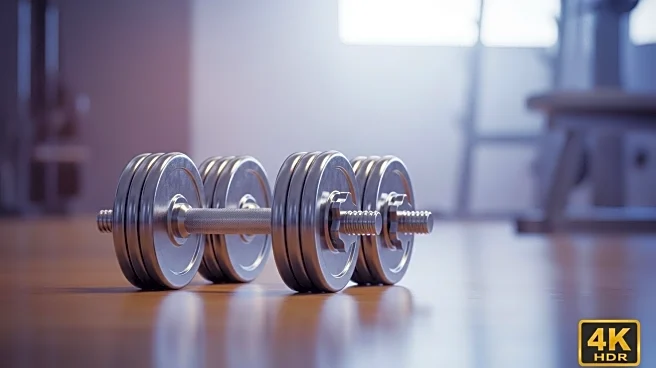What's Happening?
Anatoly Malykhin, a two-division ONE champion, shared insights into UFC middleweight champion Khamzat Chimaev's current condition and training approach in an exclusive interview. Malykhin noted that Chimaev has reconsidered his training methods, leading to increased freshness and energy. Previously, Chimaev faced health issues due to intense training regimens, but he has now adjusted his approach to maintain high performance levels without overexertion. Chimaev, who recently acquired UAE citizenship, has a record of 15 wins and zero losses, and he fights under the UAE flag. His recent victory against Dricus du Plessis by unanimous decision secured him the UFC middleweight title.
Why It's Important?
Chimaev's adaptation in training is significant for his career longevity and performance in the UFC. By optimizing his training regimen, he can sustain his competitive edge and potentially extend his reign as a champion. This shift may influence other fighters to reconsider their training strategies to avoid burnout and health issues. Chimaev's success also highlights the growing international diversity within the UFC, as he represents the UAE, adding to the global appeal of the sport. His undefeated record and strategic adjustments position him as a formidable contender in future matches, impacting the dynamics of the middleweight division.
What's Next?
Chimaev's new training approach may lead to further victories and title defenses, solidifying his status in the UFC. As he continues to compete, other fighters and trainers might observe and adopt similar strategies to enhance their own performance. The UFC may also see increased interest from international audiences, particularly from regions represented by fighters like Chimaev. His next fights will be closely watched to assess the effectiveness of his training adjustments and their impact on his performance.
Beyond the Headlines
Chimaev's journey reflects broader themes of adaptation and resilience in sports. His ability to modify his training in response to health challenges underscores the importance of sustainable practices in high-performance environments. This development may prompt discussions on athlete welfare and the balance between rigorous training and health preservation. Additionally, Chimaev's representation of the UAE highlights the role of sports in fostering international connections and cultural exchange.










